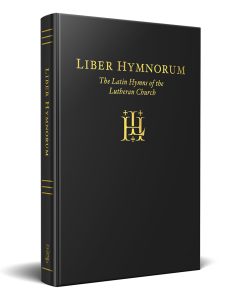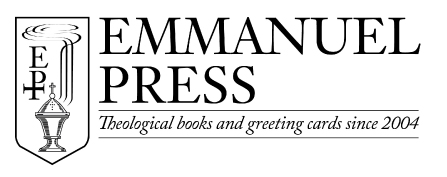 We are still finalizing the release date for Liber Hymnorum, but we do have a few more details to share. It is a hardcover book, 342 pages, 6″ x 9″, selling for $35.00.
We are still finalizing the release date for Liber Hymnorum, but we do have a few more details to share. It is a hardcover book, 342 pages, 6″ x 9″, selling for $35.00.
Over the course of the next week, we plan to provide excerpts, more of the interview with author Matthew Carver, and additional endorsements. Today, we offer you his answer to our question regarding the translation and settings:
“The translation came about mainly in two ways. First, since most of the ancient hymns for the prayer services were unchanged when Lutherans incorporated them into their hymnals, I took a similar approach and used the familiar translations we have of those hymns, written by some of the great poets and translators of the 19th and 20th century, such as Edward Caswall, J. D. Chambers, and J. M. Neale. Above all, I tried, where possible, to use those translations which are familiar to Lutherans (and Christians generally) through books such as the English Hymnal and The Brotherhood Prayer Book. At the same time, some of the collection represents an alteration or accommodation to pure Lutheran doctrine. For these, I started with the familiar translations and tweaked those parts which the Lutherans had tweaked, which were not many, to be fair, since the majority of the most ancient hymns appointed for use in the church are doctrinally pure. Additionally, there are several Reformation-period hymns written in Latin by the learned poets and teachers of the day, such as Philip Melanchthon. These were composed to ancient meters and set to ancient melodies (the only new melody here is that for the Latin version of Luther’s “Erhalt uns Herr bei deinem Wort”). And while some of these have been translated into German and from German into English, they have not, before now, been translated directly into English verse to be sung to the same melody. These Reformation-period hymns are thus presented here for the first time for church and devotional use.”

